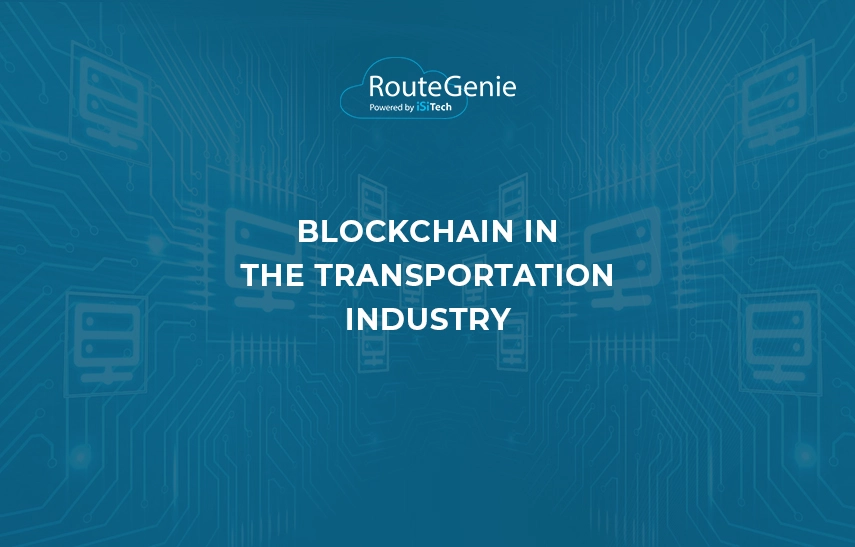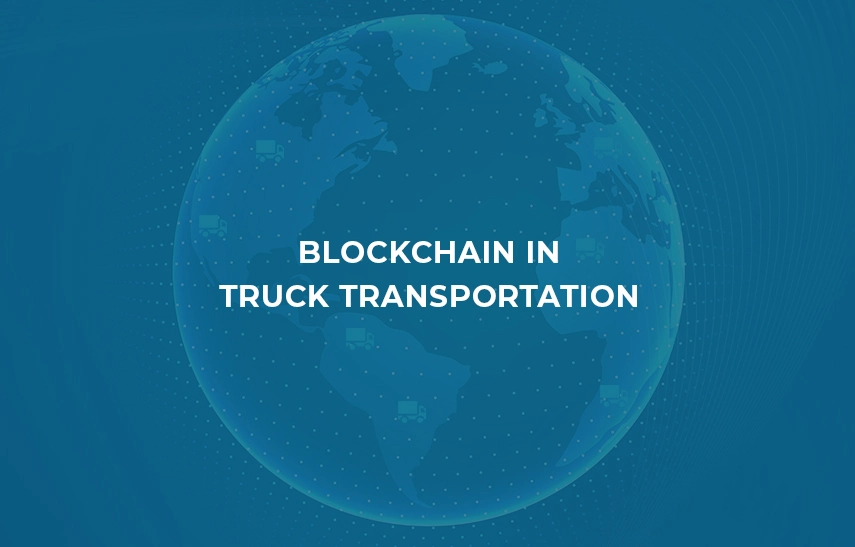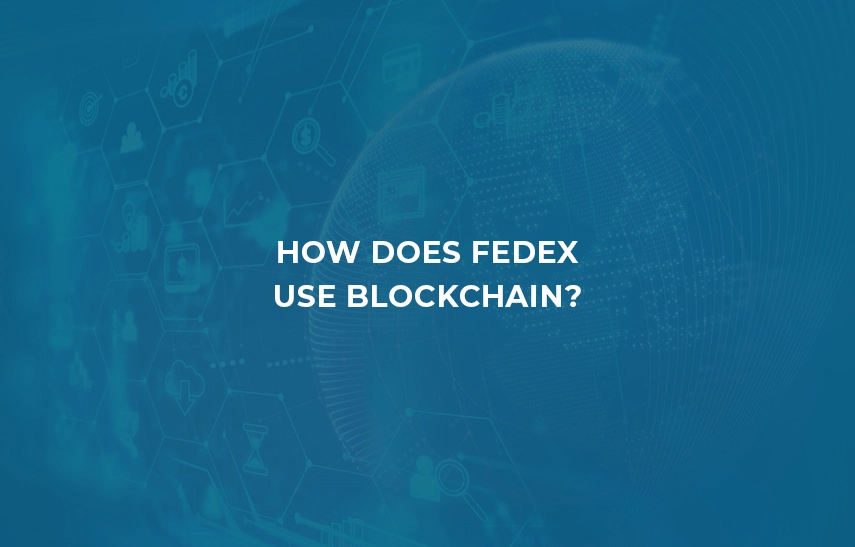Blockchain in the Transportation Industry

Blockchain technology is revolutionizing many industries, including public and private transportation. It has become a very powerful tool that provides new and efficient methods for managing data, business processes, and transactions.
Many industries value the standardization of such procedures and improved security, which blockchain promises. And with the power of the internet and prevalent digitization all around the world, blockchain is becoming a popular tech solution across industries.
Transportation is crucial on a personal and systemic level, along with logistics and supply chain management. So how does blockchain resolve the issues in these industries? How can it improve transportation and logistics technology and make an impact on customers and businesses alike?
Let’s explore what blockchain in transportation can do and see how far it has come from bitcoins and gaming.
Contents:
- What is Blockchain Technology?
- What is Blockchain in Transportation?
- Using Blockchain for Transportation
- Blockchain in Truck Transportation
- Blockchain in Public Transportation
- Blockchain in NEMT
- Examples of Blockchain in Transportation
- How Does FedEx Use Blockchain?
- How Does DHL Use Blockchain?
- Frequently Asked Questions
- Final Thoughts
What is Blockchain Technology?
Blockchain technology uses an advanced mechanism for storing data and managing its database. But it still provides information transparency by sharing the data within a highly secure business network.
A blockchain stores data in blocks that are connected or grouped through a chain. This chain makes it difficult to cheat or hack the system. So the digital ledger of information can be distributed across a network of computer systems without the risk of fraud or compromise.
Blockchain then creates a decentralized network for organizations and companies to leverage and store data. It helps people who use these services to pay their bills, utilities, parking, and other obligations electronically. So it provides a secure platform for any industry to store sensitive data.
What is Blockchain in Transportation?
Blockchain can help transport companies manage fleets, routes, and overall operations. It can even monitor traffic incidents and other such situations that can get in the way of a smooth trip for passengers. It provides transparency and security for transport companies, which significantly minimizes instances of fraud or threats.
Blockchain also provides a scalable solution to track and authenticate services. It improves the flow of information between providers and clients, thus ensuring satisfaction for all parties. At the same time, it cuts down on paperwork and time spent on communication.
With blockchain technology, transport companies can improve their billing and payment systems. Clients and companies can complete transactions with smaller commissions and faster speed of transaction. Both parties can track the movement of vehicles on the road. It makes it easier for companies to schedule trips and choose their preferred delivery methods.
Blockchain also provides a reliable way to verify data from the first client contact to the completion of a trip and all details in between.
Using Blockchain for Transportation
These capabilities make blockchain technology a promising solution. It has many benefits that can solve many issues in the transport industry, including the following:
- Poor tracking
- Poor fleet management
- Administrative inefficiencies and errors due to manual processes
- Canceled trips
It can also coordinate all processes crucial for running a transport company:
- Robust billing and payment system
- Efficient data management
- Transparent and secure information sharing via cloud dispatch software.
Here are some benefits of using blockchain in the transport industry:
Increases Data Security
Blockchain makes it difficult for hackers or fraudsters to change or steal data from companies. Because of the nature of a decentralized data management system, there is no central point of failure for malicious parties to exploit.
The system is resistant to compromises because one block cannot be changed without altering the rest. This level of security makes it ideal for transport companies that use apps to bill clients or track their fleets. Such sensitive financial or personal information will remain private.
Improves Tracking Systems
Blockchain also enables companies to track updates across all processes. This makes it easier for routing software companies to identify pain points and needed improvements. All parties are also identified immediately when an unfortunate incident occurs.
Companies can easily track the movement of a parcel for delivery. This also applies to a passenger’s journey to a scheduled pick-up or destination. Blockchain makes it easy to trace where delays occurred to improve operations.
Improves Management Processes
Transport companies can reduce the waiting period for a lengthy verification process with blockchain technology. You can make the billing process more accurate and efficient. It also ensures that all transactions are completed within the set schedule.
You can also identify potential errors when processing payments, scheduling trips, or creating the best routes for trips.
Saves Time and Resources
Transport companies and other service providers can save on time and resources when transactions and payments are completed within the set schedule. For healthcare providers, the medical billing process is made easier through a shared but secure database.
You do not have to hire additional staff to manage your bookkeeping or other admin tasks. Blockchain simplifies deal completions and transactions, reducing the time and effort to chase after clients or new contacts.
Provides Information Transparency
The transport industry values transparency, and blockchain technology provides companies and clients clarity. Both parties can access real-time data on the movement and progress of a trip or delivery. This significantly streamlines routing and dispatching services on all levels.
It also gives companies the latest updates on a trip, route, or the state of specific vehicles or drivers on the road. This way, they can provide the support their drivers or clients need.
Blockchain in Truck Transportation

Blockchain provides faster data verification and improved logistics and scheduling. Companies can track their fleets, explore different routes, and check on road conditions.
Many industries rely on the global supply chain to distribute goods and services to customers all over the world. This dependency has only increased in the last few years. The trucking sector is a crucial element of the supply chain. Many industries rely on them for deliveries and order fulfillment.
Using blockchain in transportation can improve complex processes in the trucking sector. Security checks, goods validation, and other requirements, such as taxes and tariffs for cross-border cargo and transport movement, are completed with ease.
You can use other technologies, such as facial recognition and automation, with blockchain technology. You can leverage these advanced tools to manage, store, and access data securely. It can automate your processes and transactions with minimal resources and effort.
Blockchain in Public Transportation
Blockchain can also be leveraged to improve public transport systems. It can significantly reduce costs, risks, and wasted resources in this sector. It can be used to create a transparent audit trail to ensure regulations compliance and review contract management for public transport providers.
Using blockchain reduces bureaucracy and paperwork through automated data and information storage. When sensitive information is resistant to hacking and tampering, it ensures the privacy of all parties.
Blockchain technology also streamlines other processes, such as insurance, brokerage, and settlement services. Modern transport systems involve various parties working to meet the public’s needs. They are often connected through support systems that require rapid data processing, such as signaling and ticketing.
Given this immense coordination, blockchain technology can reduce the difficulty in communications, inspections, reviews, and revenue clearings. It ensures data security on all levels. It also provides network availability through real-time evaluations and increased fault tolerance in the systems. This significantly lowers costs and increases efficiency.
Blockchain can be a platform for multiple operators to work with various agencies for smooth transport services.
Blockchain in NEMT
The non-emergency medical transport (NEMT) industry can use blockchain technology to coordinate and manage transport. They can provide streamlined services to patients and clients that need healthcare services.
The U.S. government has created public health programs that include transportation and a budget for 2023 increases in spending on the medical transportation industry. The commercial insurance market also spends more than $2 billion on NEMT services. The medical transportation sector will continue to grow in 2023 and beyond.
NEMT service providers cover a wide area of services related to healthcare. This has given the industry tons of variation in how they help their clients.
Blockchain technology can provide greater efficiency and increased savings. This can apply to NEMT providers who work with government-funded programs and private insurers.
Forward-thinking NEMT software providers such as RouteGenie already leverage advanced technology. They use it to track and document scheduled trips to a healthcare provider or facility. This reduces costs, time, and resources. The software provides transparency and system interoperability across the board.
Examples of Blockchain in Transportation
Order Delivery Tracking
Intelligent order delivery tracking systems use blockchain. Many companies now offer same-day or express delivery within one or two hours.
Doing this requires a digital solution that can immediately authenticate orders, complete them, and initiate delivery and tracking. A blockchain platform can easily coordinate these processes and provide the information required through a shared database.
Blockchain improves the flow of data from the moment a customer places an order. With the speedy processing of transactions, deliverables, and customs clearances, delivery can be completed in an instant. It also provides a reliable verification system that remains secure.
In-vehicle Payments
Another real-life example of blockchain technology improving transportation is the in-vehicle payments used by IBM in coordination with UBS and ZF Friedrichshafen AG.
The Frankfurt-based company worked with IBM to use a blockchain-based transaction platform for their mobility services. It includes in-vehicle payments for motorists to pay tolls, car-sharing app payments, parking fees, and even electric vehicle battery charging fees.
How Does FedEx Use Blockchain?

FedEx is using blockchain technology to improve delivery and packaging services. They initially used it to resolve disputes in freight claims that cost them millions of dollars every year.
They used blockchain to deal with claims using three-way dispute resolution for recipients, senders, and carriers. They shared information with all stakeholders, creating a permanent ledger to resolve such issues.
Customers can now easily track packages in transit from the factory to their doorstep. This has helped FedEx secure the chain of custody for all packages and streamline data exchange for all stakeholders. Blockchain has also helped the company identify areas that need improvement.
FedEx also plans to explore other ways blockchain can provide the transparency that customers want or need throughout the supply chain. This will further improve the services they provide and the company’s relationship with its customer.
How Does DHL Use Blockchain?
DHL uses blockchain technology to create nodes in six global locations. These track the movement of pharmaceutical products throughout the supply chain. This significantly reduces errors and the potential for fraud.
Hospitals and pharmacies can track the movement of these critical supplies. They can implement measures to ensure the safety and source of these products. Blockchain technology allows them to verify the sources. They can also review the delivery path of each drug or medication.
Frequently Asked Questions
What are the different types of blockchains?
There are two main types of blockchain: private and public. These two have several variations, such as hybrid and consortium.
A public blockchain is a permission-free ledger that everyone can join and conduct a secure transaction.
Private blockchains are operated by a single identity in a restricted network.
What are Cryptocurrencies and Tokens?
A cryptocurrency is a virtual currency or denomination that can be traded for services or assets. Usually, a coin has its own blockchain and can be used within that platform.
Tokens are another kind of virtual currency. They do not have their own blockchains. Instead, they are issued on top of existing networks and cannot be “mined” like coins. They are minted through data verification or proof of stake.
What are Smart Contracts?
A smart contract is a program that is stored in a blockchain. It will only run when certain conditions are met. They can automate and execute an agreement between participants. Such transactions do not need third-party involvement. All processes are efficient and completed with no wasted time or resources.
What is the Internet of Things (IoT)?
The IoT is a network of smart objects that are leveraged in different applications. Examples include healthcare devices, sensors, and robots. They connect, share, and exchange data with other devices, platforms, and systems using the internet.
Final Thoughts
The promising benefits of blockchain for the transportation industry are highly encouraging. The future is incredibly promising, with the potential for higher revenue, efficient operations, and better fleet management.
Technology can also improve customer satisfaction and service. The provided transparency and speedy delivery make it a plus for customers. And automation ensures fewer errors and improved privacy while simplifying data verification.
It won’t be a surprise in the coming years when blockchain technology goes mainstream. It has many benefits that can make the transport industry much better
About the author

As RouteGenie's Marketing Director, Yurii gained deep knowledge in the NEMT industry. He is an expert in marketing, leveraging all channels to build RouteGenie's brand and ensure NEMT providers have access to powerful NEMT software that can boost their growth. Yurii shares his knowledge by writing content on marketing and healthcare topics, including medical transportation, home care, and medical billing.